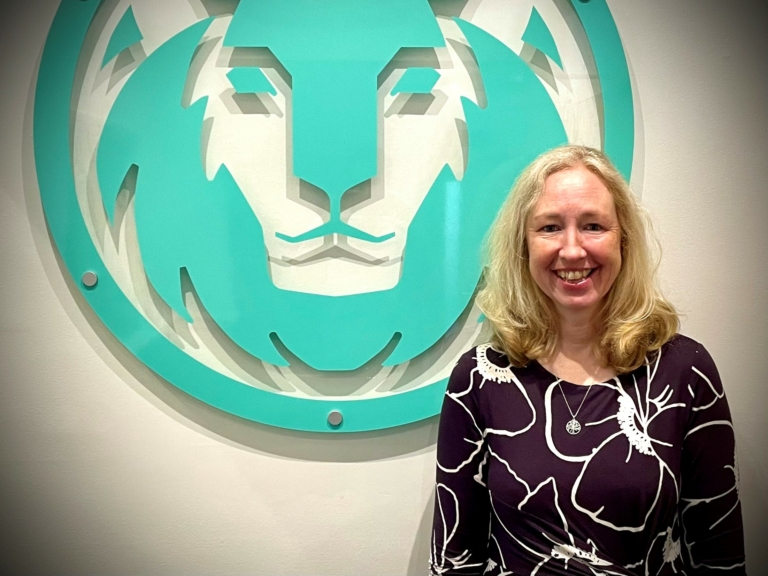OK, so I'm approaching five years running The Henley Partnership, and 10 years keeping a watchful eye on how companies manage change, writes Mark Swain.
In all that time, what is the best thing I've learned about change? It's simply that you need to tune-in to how every person in your team is feeling, at all points on the change journey. And unless you're one of those superhero leaders, with hyper-sensitive antennae or oodles of natural empathy, you'll need to spend time finding out (and then capturing and calibrating) what you see and hear. As long as you use that information to adapt how you manage each and every individual, you'll master the art and science of increasing their engagement, resilience and performance - and have all-round happy humans. And happy humans is what increases the snail-like RATE of change as well as the breathless PACE of change.
 So how do you speed things up? As one of my guests said: "We want an answer to the problem." Going back to that 'best thing I've learned', how do you assess how every person is feeling about change? I've seen leaders do simple things in team meetings, like asking everyone to mark their initials, where they think they are on a pre-drawn change curve. I've seen other leaders give people stickers, to mark on a 1-10 scale how they are feeling about particular changes. Both are good and simple ideas, but I'd like to give you something more robust. That's why I'm nabbing and adapting something from our speaker for today, the wonderful Jane Sparrow. Using her "Bank of Me" approach (which looks at change energy as a human bank balance that's in the black/credit or the red/debit), Jane gets the group to think about people playing one of four roles, or being in one of four states of change:
So how do you speed things up? As one of my guests said: "We want an answer to the problem." Going back to that 'best thing I've learned', how do you assess how every person is feeling about change? I've seen leaders do simple things in team meetings, like asking everyone to mark their initials, where they think they are on a pre-drawn change curve. I've seen other leaders give people stickers, to mark on a 1-10 scale how they are feeling about particular changes. Both are good and simple ideas, but I'd like to give you something more robust. That's why I'm nabbing and adapting something from our speaker for today, the wonderful Jane Sparrow. Using her "Bank of Me" approach (which looks at change energy as a human bank balance that's in the black/credit or the red/debit), Jane gets the group to think about people playing one of four roles, or being in one of four states of change:
Investors - they are the people in your organisation who are investing the best of what they have and, interestingly, not necessarily the most. They are invested in the journey, and the success of change (these are your advocates and champions, if you want to think in more conventional Change terms)
Savers - they are those who come in and do a good job; making a positive contribution even if they aren't giving absolutely everything or are perhaps holding something back (like ideas or taking responsibility)
Overdrafters - they seem somehow disconnected and detached, and are taking from the organisation rather than giving back, which gradually drains the energy of the business
Bankrupters - they are the negative naysayers who are draining the energy fast, and spreading negative energy at whatever level they're working (are usually on the bottom of everyone's wish list and the top of the hit list).
What role is being played by each of your direct reports, or each member of your project teams? Are they an investor, saver, overdrafter or bankrupter? I'm going to make a (BIG?) assumption that you are having enough contact with your people to make that judgement. Where are they about your current changes (the NOW). Where do you think they are likely to be in three months, if their current workload & responsibility/attention & support continues as it is today (the NEXT). When you've done that, identify their direction of travel i.e. where you think each of those people is most likely to be when you embark on the planned future changes (the FUTURE)? Note down the why. All that gives you a simple reckoner (and I've shown a "Change States Assessment Template" below).
Yes, it's subjective, and just gives you a start. Overlay more robust employee engagement and performance management data to validate the trends and themes you are seeing (although keep this all private). And refresh this regularly, because people move up and down the change curve more often than you think. If you like, use the same principles to record how people are feeling about individual changes, rather than change overall.
What do you so with what you have? You already know that you can't deliver one blanket message about change (although many organisations do). Use this grid to think about how to tailor what you're saying. For example, Investors need more information than most, or more frequent checking-in, to keep them engaged (so they don't drift off or change states). And don't give them every big change project or change task, just because they respond brilliantly (that's such a turn-off). Savers need change messages tailored to them (the WIIFM), so they can connect and get inspired. Overdrafters need careful treatment, to ensure that they either see the vision for the future (and get engaged) or adjust to giving good performance in the new world. Bankrupters need to turn around fast, or head for the exit. And you need to be more proactive with those who will move to a less positive role if left alone. Involve them early. Give them the full picture. Explain their part in all of this...
Of course, I've scratched the surface with this way of thinking about change. And Jane has much more depth and nuance, in the "Bank of Me", than I could every portray in a five-minute article. She looks at the roles people play in change at a much more detailed level. Please do get in touch if you'd like to hear more.
This article was inspired by Jane Sparrow and our "Leading Change: Don't Light Your Own Fuse" event in The Henley Partnership. The Henley Partnership at Henley Business School is a simple and smart way for board, directors and senior managers to access high-end learning and leadership development. We work together with our diverse membership, to co-create an ongoing programme of learning events around the business issues that matter most to them - covering leadership, strategy, innovation, organisation, engagement and change. For further information about corporate membership, contact [email protected] or call 01491 418855.














